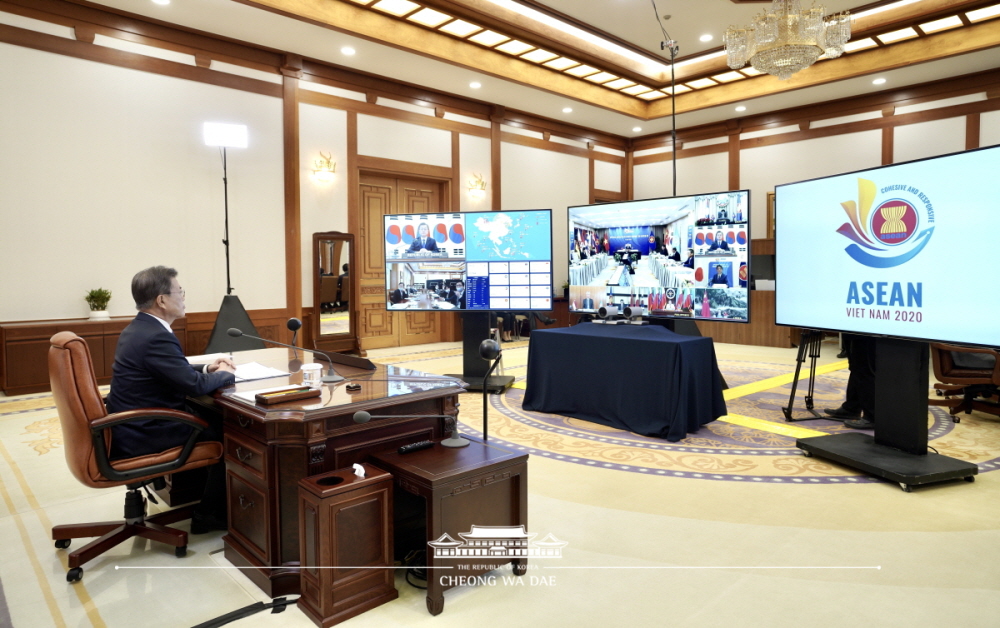이 웹사이트는 제19대 대통령 임기 종료에 따라 대통령기록관이 「대통령기록물 관리에 관한 법률」에 의해 이관받아 서비스하는 대통령기록물입니다. 자료의 열람만 가능하며 수정 · 추가 · 삭제는 불가능합니다.
다만, 「개인정보보호법」에 의하여 개인의 정보를 보호받기 원하시는 분은 관련 내용(요청자, 요청내용, 연락처, 글위치)을 대통령 웹기록물 담당자(044-211-2253)에게 요청해 주시면 신속히 검토하여 조치해 드리겠습니다. 감사합니다.
MEDIA

By Xu Aiying and Lee Jihae
The leaders of member nations of the Association of Southeast Asian Nations (ASEAN) and Korea, China and Japan have agreed to actively cooperate to overcome the novel coronavirus disease (COVID-19).
At the Special ASEAN Plus Three Summit on Coronavirus Disease on April 14, President Moon and 12 other heads of state adopted a joint statement on the pandemic. They proposed the timely and transparent exchange of real-time information on the situation on the ground and measures taken by each country, as well as allowing the travel of essential persons such as business leaders, medical professionals and humanitarian workers.
The summit also proposed the creation of an ASEAN+3 Reserve of Essential Medical Supplies and the COVID-19 ASEAN Response Fund, strengthening of an early warning system, and sharing and leveraging of digital technologies and innovation.
In his opening statement, President Moon said the ASEAN+3 region is "home to 30% of the world's population and economy" and comprises a "community of common destiny that is closely interlinked through solidarity and exchanges."
"I hope we will prevail over the COVID-19 crisis together, just as we have done so in times of crisis and opportunities in the past."
He also laid out Korea's experience and creative measures in handling the pandemic, saying, "To overcome infectious diseases, the public should be the principal actors in quarantine efforts."
President Moon proposed three measures to strengthen solidarity and policy aid of ASEAN+3: timely provision of quarantine and medical supplies to those in urgent need, active sharing and utilization of information and clinical data accumulated that each country has accumulated, and maintenance of the essential flow of economic and human exchanges, trade, investment and food.
"In our capacity as this year's Coordinator of the Plus Three countries and the chair of the Korea-China-Japan Trilateral Summit, the Republic of Korea will play an active role in facilitating cooperation and strengthening solidarity in East Asia," he said.
"I hope today's consultations, as well as the commitments we have made, will contribute to collective global efforts to end the COVID-19 crisis."
***



